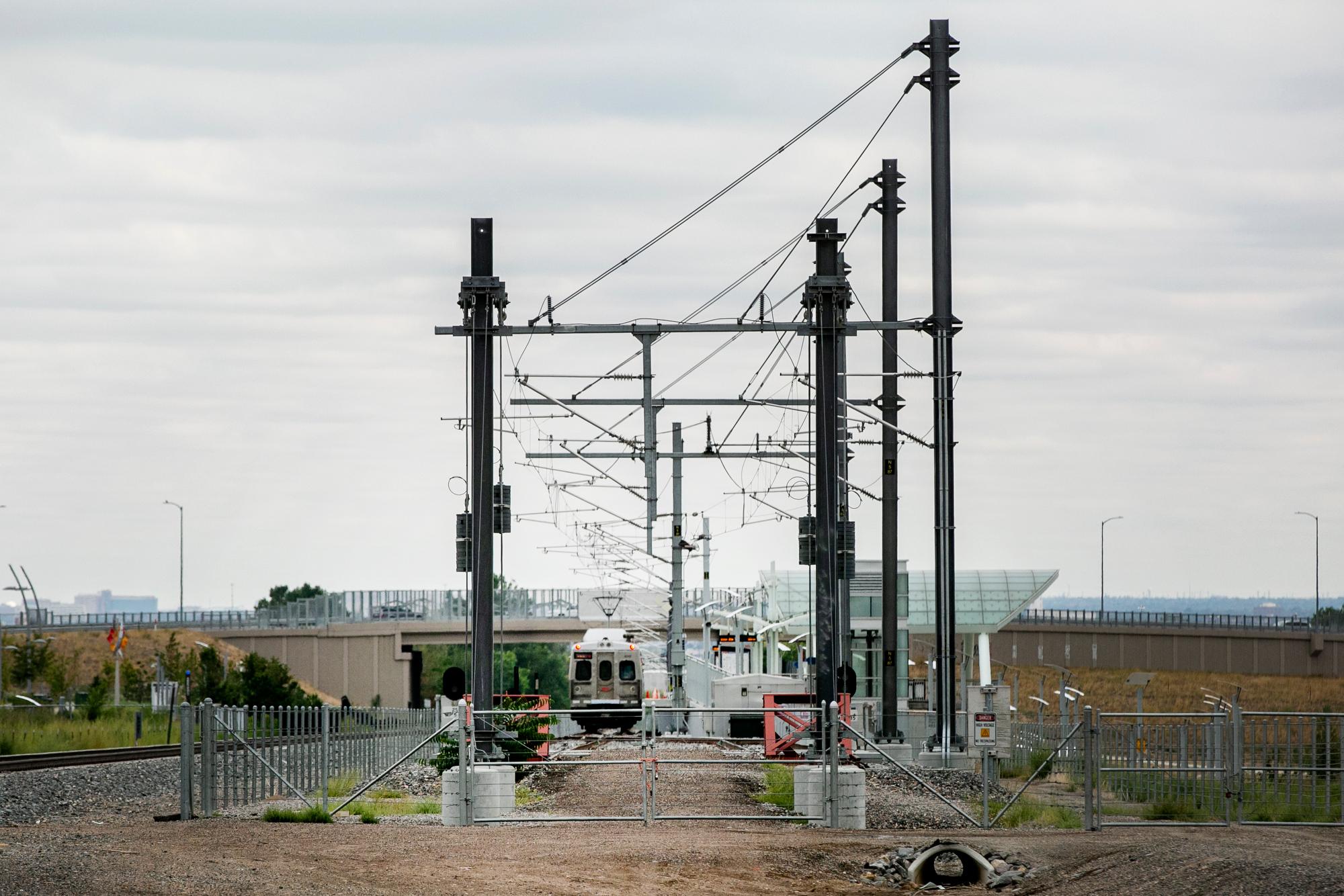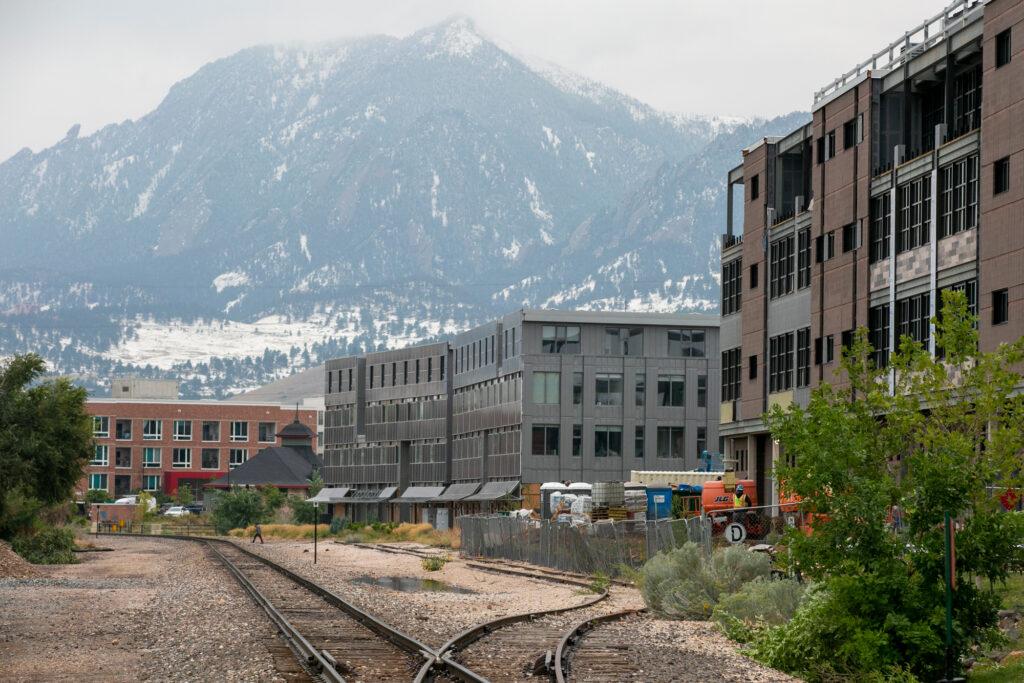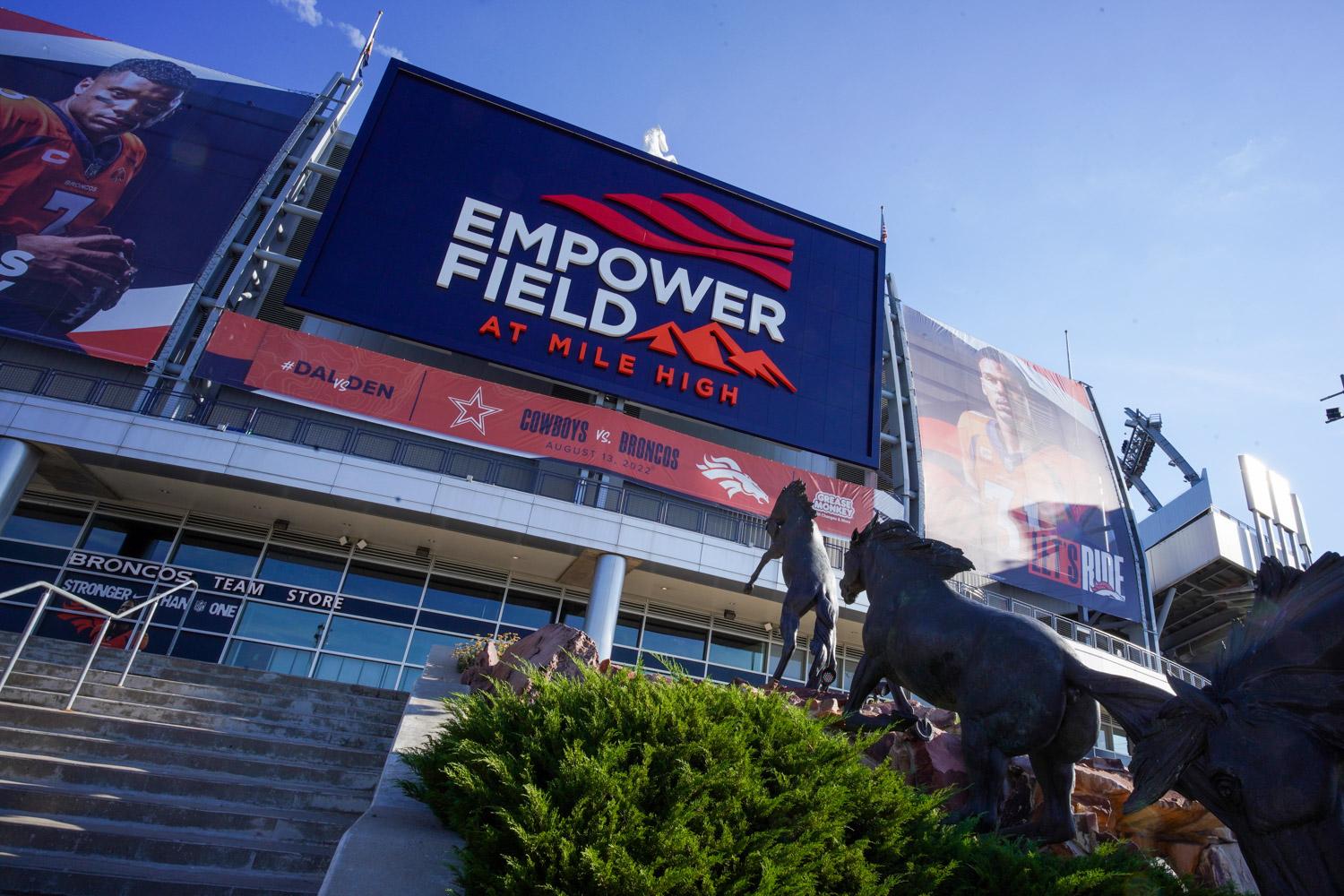
The Regional Transportation District is drawing up plans to kickstart its dormant Boulder and Longmont rail project.
CEO and General Manager Debra Johnson told a special board meeting Tuesday that her staff will deliver a plan to the board within 60 days. That could include a recommendation that the board approve paying for updated design and environmental studies.
"I think that's the first step forward,” she said. “Because right now we're just talking in ambiguity.”
RTD promised the B Line as part of its 2004 FasTracks expansion plan, which has resulted in a half-dozen new rail lines and a speedy bus line across the metro since then. The B Line, which would extend 41 miles from Denver to Boulder and Longmont, now only reaches Westminster because RTD did not have the funds to run it farther.
Johnson's recent comments questioning whether, because of ballooning costs and RTD's financial woes, the project should be dropped altogether resulted in backlash from elected officials in the northwest region, including U.S. Rep. Joe Neguse and Gov. Jared Polis.
Polis joined the meeting Tuesday and continued to pressure RTD. He told the board that RTD’s inability to finish the B Line, which has a price tag now estimated at $1.5 billion, has eroded taxpayer’s trust in governments beyond RTD. He also said the current estimated completion timeframe of the 2040s was “not a legitimate date for discussion.”
“It creates a gap in public trust that doesn't just affect transit,” he said. “It affects education, it affects our potential for Front Range rail, which might involve an ask of the voters. It involves funding for higher ed. It involves social services funding.”
Polis said he’s sympathetic to RTD’s current leaders, noting that none were in their positions in 2004 when the FasTracks vote passed.

“I don't think anybody would make this deal today,” Polis said. “But that doesn't matter. The voters have been paying taxes for this project now since 2005.”
A majority of the board members who spoke Tuesday supported RTD paying for new engineering and environmental work. That would specifically look at a lower-cost, rush-hour-only service plan that early estimates say would cost $700 million but only move 800 people a day.
“No one is expecting us to break ground on the B Line tomorrow,” said board member Erik Davidson of Broomfield. “But they are asking us to take credible and material next steps and to honor our commitments and to engage with them. They are asking us to lead."
RTD has about $120 million in a FasTracks-dedicated savings account that could cover the cost of the new studies. But unless a new revenue stream appears — and Polis did not offer one — or costs fall significantly, it’s not clear how RTD could afford construction. The agency is facing significant long-term financial challenges.
Polis said RTD should use its recent COVID relief grants to further the B Line project, but RTD has already indicated it plans to use that to restore service from the cuts it made last year when the pandemic hit.
A handful of board members pointed out that RTD has other unmet FasTracks projects — including increased suburban bus service — that do not receive the same attention as the B Line. They also said RTD needs to balance the B Line with its priorities elsewhere.
Local transit advocates have gone even further, saying that RTD needs to drop the B Line completely in favor of far more cost-efficient services like rapid bus lines.
“I feel like I’m taking crazy pills,” tweeted Matt Frommer, a transit advocate at Southwest Energy Efficiency Project who was watching the meeting.
He continued: “To earn back our trust, RTD should provide reliable & frequent transit service on the existing system & focus new investments on the most cost-effective projects that increase ridership, improve equity, and cut pollution.”
Some of the directors who spoke Tuesday said that because the Biden Administration has expressed interest in passenger rail projects, and the state’s continued work on a passenger rail line between Fort Collins and Pueblo, now is a good time to push the B Line forward.
“It seems like a new time,” said board member Shelley Cook of Arvada. “Our stars are sort of aligning.”









